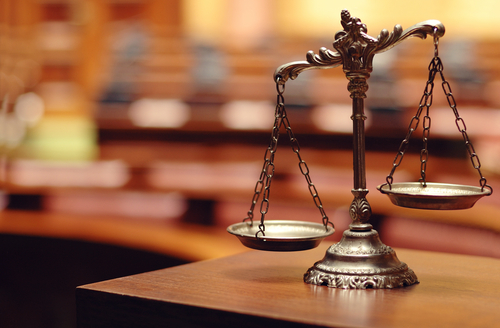
Photo: Shutterstock
As reported by DNA, the new bill would place juveniles who commit a “heinous” crime before a Juvenile Justice Board. The board, which would consist of psychologists and social experts, would then decide whether the accused should be tried as a ‘child’ or as an ‘adult’.
Furthermore, according to PRS India, the bill would allow a 16-18 year old accused of a non-heinous crime to be tried as an adult if apprehended after the age of 21. Therefore the bill would penalize a child differently depending upon the age at which he or she is apprehended, not on the age at which the person committed the crime.
The harsh provisions of the bill were partly prompted by the December 16 gang-rape and murder of a medical student in Delhi and another brutal rape committed by juveniles in Mumbai, which saw a public outcry for stricter laws to punish the rapists. Although there is a perception of an increase in crimes committed by juveniles, child advocates question whether the juvenile crime rate has gone up in reality.
Activists are flummoxed that the law will permit children to be criminalised as adults, even those who have committed heinous crimes, as this leaves little room for rehabilitation and has the potential to lead to further criminalisation of the youth.
Activists are concerned that the consequences the Bill could have on children have not been thought through.
“The media highlighted the role of juveniles in Delhi’s December 16 and Mumbai’s Shakti mills cases, and by doing so, roused the debate. The government, in answer to the protests came up with the argument that the Bill, simply put, looked at cutting the costs of refurbishing and maintaining juvenile remand homes instead of reforming the child. So, they just sought to put children in adult jails,” said Bharati Ali of Haq Centre for Child Rights, a child advocacy group.
In February 2015, a standing committee led by Union health minister JP Nadda was formed to review the Bill. The committee noted that the Bill was in violation of Article 14 (right to equality) and Article 21 (requiring that laws and procedures are fair and reasonable) of the Constitution, while doing little to help juveniles at risk. “We found that the proposed law does not warrant social justice as it claims. Instead, it seems to be shifting accountability to the child. Children cannot be treated at par with adults. When it comes to children, the government and the law has a greater responsibility of reform,” said Rajya Sabha MP Tiruchi Siva, who was a member of the standing committee.
India is a participant to the UN Convention of the Rights to the Child, which requires equal treatment of all children under 18. Trying 16-18 year olds as adults would go against the convention.
The bill also includes new provisions for adoptions and makes the Central Adoption Resource Agency a statutory body so that it can more effectively enforce adoption regulations. The bill also seeks to simplify the laws around adoption and allow non-Hindus to adopt children.
Should children be tried as adults and under what circumstances? Leave a comment below. Please like FamiLife’s page on Facebook so that you get all our articles and others may find us.
